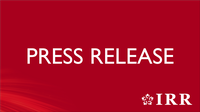
Press Release
Now that it has become clear that the lockdown is not a temporary phenomenon but a fixture for the foreseeable future, it is all the more vital to examine, and counter, the threat it poses to the political and economic freedoms of all South Africans.
So warned Dr Anthea Jeffery, Head of Policy Research at the Institute of Race Relations (IRR), in an online media briefing today on the dangers to liberty in this time of crisis. The briefing coincided with the publication of Dr Jeffery’s latest report, Keeping Liberty Alive.
The report warns that the economic damage from the continuing lockdown will be catastrophic – especially for the poorest South Africans who receive little protection from the lockdown in the first instance.
Says Dr Jeffery: ‘At the same time, the threat to liberty is expanding too. Now that it has become clear that the lockdown is not a temporary phenomenon but a fixture for the foreseeable future, it is all the more vital to examine the threat it poses to the political and economic freedoms of all South Africans.’
Threats and risks include the constitutional status and decision-making of the National Coronavirus Command Council; abuses by the police and army; a mounting threat to freedom of speech; the failure of the government to disclose the modelled data informing its decisions, and its failure to meet the Constitution’s founding values of ‘accountability, responsiveness, and openness’; and the sharp erosion of economic freedom, with the government even bizarrely determining what kind of T-shirts people can buy.
The report notes that major restrictions on political and economic freedoms have not been counter-balanced by evident health gains. Even the initial hard lockdown proved unable sufficiently to slow the transmission of the virus in the many teeming townships and informal settlements where social distancing and regular hand-washing cannot be achieved. This is why the reproduction rate of the virus (the R number), despite an initial fall as imported infections were reduced, has remained above 1 in all subsequent weeks of the lockdown.
It points out that, while the national state of disaster declared by the government in response to the Covid-19 pandemic has not suspended any of the fundamental rights guaranteed by the Constitution (such as rights to human dignity, equality, and just administrative action, as well as rights of assembly, demonstration and free speech, along with freedom of movement, freedom of association, and freedom of trade, occupation, and profession), the lockdown infringes all these rights in various ways.
‘Derogations from guaranteed rights are permitted under Section 36 of the Constitution, but must satisfy all aspects of what is known as the “proportionality” test. Restrictions on guaranteed rights must thus be “reasonable and justifiable” in an “open and democratic society”. There must also be a clear link between the restrictions and the purpose they are intended to achieve. It must also be shown that “less restrictive means” to achieve that purpose were not available.
‘However, many lockdown rules are clearly not “reasonable and justifiable”.’
Dr Jeffery argues that if liberty ‘is to be kept alive, it is vital to challenge every unreasonable and unjustifiable decision – from the irrationality of specific rules to the constitutionality of the lockdown as a whole’.
‘It is also important for South Africans to think ahead to the period beyond the virus, when the key need will be to revive and reinvigorate the economy after the devastation resulting from the lockdown.’
Media contact: Hermann Pretorius, IRR Deputy Head of Policy Research – 079 875 4290; hermann@irr.org.za
Media enquiries: Michael Morris Tel: 066 302 1968 Email: michael@irr.org.za
Kelebogile Leepile Tel: 079 051 0073 Email: kelebogile@irr.org.za
Ends
 LETTER | Rethinking BEE premiums could unlock billions for growth - Business Day
Feb 19, 2026
LETTER | Rethinking BEE premiums could unlock billions for growth - Business Day
Feb 19, 2026
 IRR’s 2026 Budget tips for Minister Godongwana
Feb 19, 2026
IRR’s 2026 Budget tips for Minister Godongwana
Feb 19, 2026
 Corruption-busting must begin with next week’s Budget – IRR
Feb 18, 2026
Corruption-busting must begin with next week’s Budget – IRR
Feb 18, 2026
 Hold Ramaphosa to account for his SONA admissions of failure, IRR urges MPs
Feb 17, 2026
Hold Ramaphosa to account for his SONA admissions of failure, IRR urges MPs
Feb 17, 2026
 Corrigan pt. II: FMD crisis — How did we get to this point? - Biznews
Feb 16, 2026
Corrigan pt. II: FMD crisis — How did we get to this point? - Biznews
Feb 16, 2026

 LETTER | Rethinking BEE premiums could unlock billions for growth - Business Day
Feb 19, 2026
LETTER | Rethinking BEE premiums could unlock billions for growth - Business Day
Feb 19, 2026
 IRR’s 2026 Budget tips for Minister Godongwana
Feb 19, 2026
IRR’s 2026 Budget tips for Minister Godongwana
Feb 19, 2026
 Corruption-busting must begin with next week’s Budget – IRR
Feb 18, 2026
Corruption-busting must begin with next week’s Budget – IRR
Feb 18, 2026
 Hold Ramaphosa to account for his SONA admissions of failure, IRR urges MPs
Feb 17, 2026
Hold Ramaphosa to account for his SONA admissions of failure, IRR urges MPs
Feb 17, 2026
 Corrigan pt. II: FMD crisis — How did we get to this point? - Biznews
Feb 16, 2026
Corrigan pt. II: FMD crisis — How did we get to this point? - Biznews
Feb 16, 2026